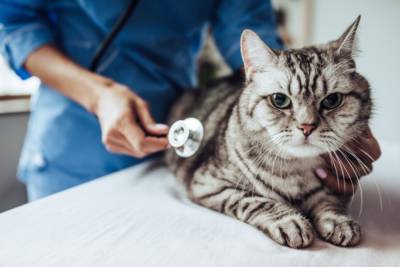
Observing your cat's behavior and paying attention to any changes can help you determine when your feline companion is not feeling well. Here are some signs to look out for:
-
Changes in appetite: A noticeable decrease or complete loss of appetite is often an indication that something is wrong with your cat. Conversely, an increase in appetite may also signal an underlying health issue.
-
Alterations in water consumption: Changes in your cat's water intake can be significant. An increase may suggest conditions such as diabetes or kidney disease, while a decrease could indicate dehydration or other problems.
-
Lethargy: If your cat becomes unusually inactive and lacks energy, it may be a sign of illness. Cats are generally known for their playful nature, so a sudden lack of interest in activities they usually enjoy could be a red flag.
-
Changes in sleeping patterns: While cats are known for their love of napping, drastic changes in sleeping habits could signify discomfort or illness. Excessive sleepiness or restlessness should be noted.
-
Hiding or isolation: Cats tend to retreat to quiet and secluded places when they don't feel well. If your cat spends an excessive amount of time hiding or isolating itself and avoids interaction, it may indicate distress.
-
Changes in grooming habits: Cats are meticulous groomers, so a lack of grooming or excessive grooming could both be indicators of illness. Pay attention to any matted fur, bald patches, or changes in their coat's texture or appearance.
-
Respiratory issues: Labored breathing, coughing, sneezing, wheezing, or any other signs of difficulty in breathing should not be ignored. Respiratory problems can range from mild to severe and require prompt veterinary attention.
-
Vomiting, diarrhea, or constipation: Digestive disturbances like these can be symptomatic of various illnesses or dietary issues. Persistent or recurrent episodes should be monitored closely.
-
Changes in litter box behavior: Keep an eye on your cat's litter box habits. Frequent urination, straining, blood in urine or feces, or using the litter box outside of their regular routine may indicate urinary tract infections, blockages, or other problems.
-
Altered vocalization: Cats may express discomfort or pain through changes in their vocalizations. Unusual meowing, groaning, or excessive vocalization can be signs that something is amiss.
Remember, these signs alone may not provide a definitive diagnosis, but they serve as indicators that your cat needs attention. If you notice any of these changes or if your gut instinct tells you something is wrong, it is crucial to consult with a veterinarian. They can conduct a thorough examination, perform diagnostic tests if necessary, and provide the appropriate treatment to help your furry friend feel better.
